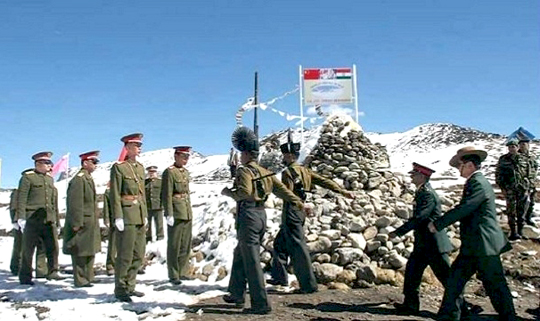New Delhi, Jul 27: Chinese troops recently violated the border in Chamoli district of Uttarakhand area and were seen camping along with arms despite the two nations having agreed to keep it a demilitarised area.

The incident took place on July 19 when a team led by Chamoli District Magistrate and others including officials from ITBP went for a survey of Barahoti ground, official sources said.
The sources said that the civilian team was sent back by Chinese People's Liberation Army troops, who claimed it to be their land.
The 80 square kilometre ground has been agreed by the two countries to be a disputed part since 1957 and was to be sorted out at the negotiating table by the two sides.
Over the past few years, Chinese troops have been spotted in the area and even air violations have taken place in this area, the sources said.
Chinese side had sent in a delegation on April 19, 1958 for negotiations with their Indian counterparts and both sides had agreed not to send troops into the area but had avoided a discussion on final settlement of the Barahoti ground.
The sources said that ever since this agreement, ITBP, which mans the 3,488-km Sino-Indian border from Ladakh in Jammu and Kashmir to Arunachal Pradesh in Northeast, had never entered the area with arms.
However, shepherds from both sides were allowed to enter the ground.
The Chinese troops have since the reported incursion returned even as apprehensions persisted that they may be taking undue advantage of the agreement of 1958 by pushing in their soldiers into the area which they recognise as 'Wu-Je'.
While Uttarakhand Chief Minister Harisgh Harish termed the development as "something to worry about" hoping that Centre will pay heed to his request for increased vigil, Union Minister of State for Home Kiren Rijiju said ITBP had been asked to look into the matter.





Comments
Modi's Ache Din! Modi puts one leg in China and other in USA...invitation for trouble.....
where is \Chappan inch ki seena\" ?"
56 inches ...
Jhumla: Chaina jakar aank laal laal karke samjhana chahiye tha
Oh teri, PM will plan for another tour now and Arnab will pick other story from Pkistan or Zakir naik to avoid this news.
Add new comment